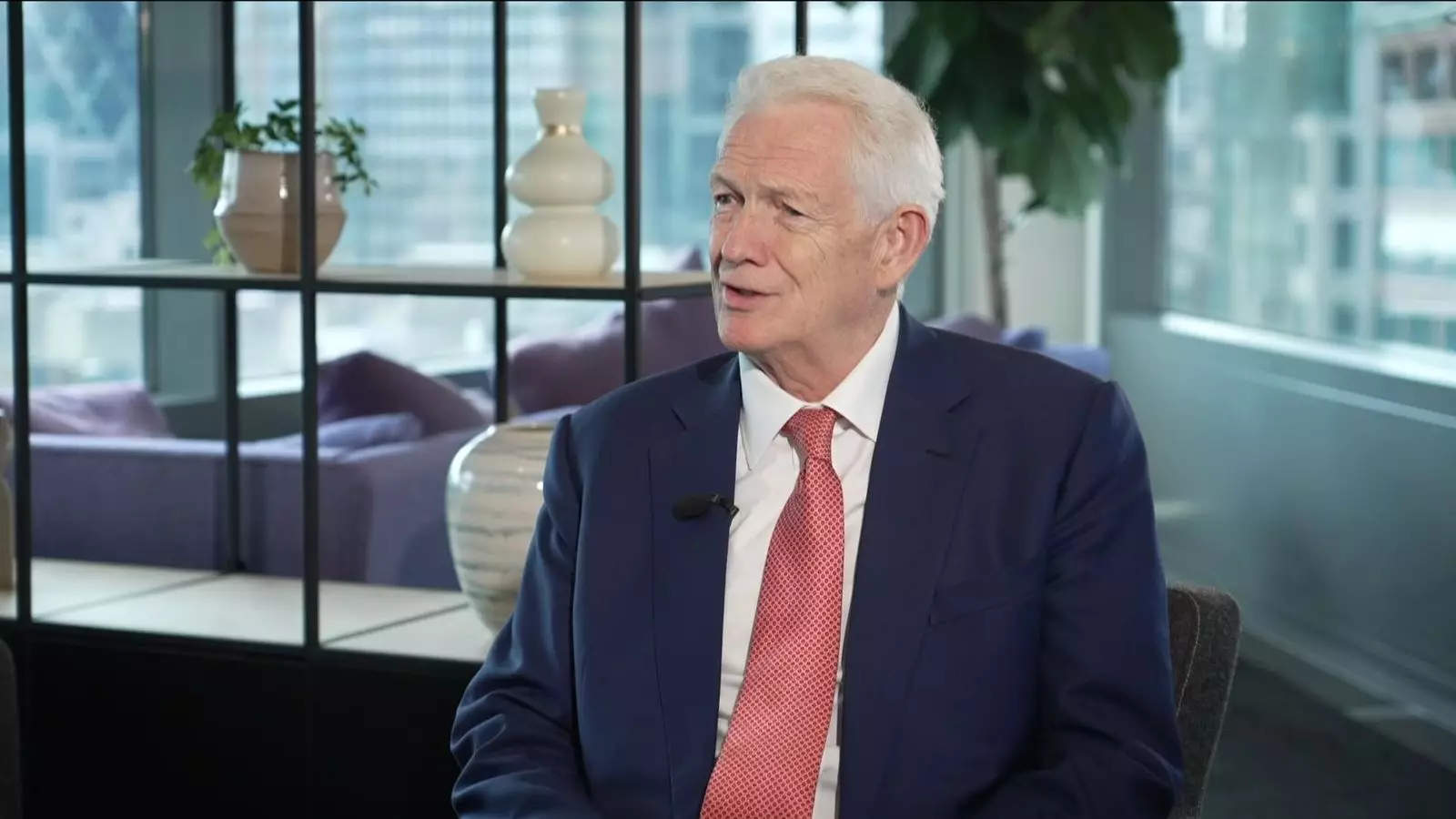In a moment that might have been meant to evoke gratitude, Rick Haythornthwaite, the new chairman of NatWest, declared his appreciation to British taxpayers for saving the bank during the financial turmoil of 2008. While the sentiment may seem noble, it raises an essential yet discomforting question: Are we genuinely grateful, or do we merely want to bury our heads in the sand and forget the costly missteps that brought us here? The statement is reminiscent of a child being scolded for misbehavior, only to feign understanding when faced with the consequences. Taxpayers are not merely generous benefactors; they are the unwilling victims of a public finance tragedy, left to bear the brunt of an industry’s recklessness.
As the government relinquishes its finally sold stake in NatWest, headaches about the £10.5 billion loss from the bailout should echo through the Chamber of Commerce more loudly than any thank-you note could ever hope to resonate. In this context, the word “gratitude” feels more like a manipulative tactic to gloss over a bitter reality rather than an earnest acknowledgment of our collective sacrifice. It is as if the bank hopes that the shadow of its history will vanish with a wave of patriotic thanks, when in reality the scars of this economic crisis will linger long after the last vestiges of state ownership fade into memory.
Regulation and Responsibility: A Double-Edged Sword
The post-crisis era ushered in a slew of regulations intended to safeguard the financial ecosystem from similar catastrophes. However, Haythornthwaite’s assertion that “the pendulum may have swung too far” concerning these regulations raises eyebrows. If the lesson learned was about risk and accountability, can we genuinely argue that banks are now penalized excessively for the greed and folly that led to their downfall? Those who intuitively peddle deregulation speak from a place of privilege, often insulated from the very economic wreckage their actions can wreak on everyday lives.
Moreover, while advocating for the relaxation of regulations on the grounds of economic growth, the danger of initiating yet another cycle of reckless behavior cannot be overlooked. One wonders whether Haythornthwaite’s vision of a more flexible regulatory environment truly prioritizes the consumer or merely serves the interests of a few well-positioned elites who risk nothing to profit from the bloated banking system. To suggest that a complete overhaul of these safeguards is warranted suggests a troubling amnesia concerning the past, as if forgetting Fannie Mae, Lehman Brothers, and the chaos that followed is an option.
The Path Forward: Prioritizing Ethics Over Profits
Prominent voices in government, such as Chancellor Rachel Reeves, seem open to reconsidering some of these regulations, echoing the mentality that has historically led us into dangerous territory. Dispelling the ring-fencing that separates core retail banking from investment banking would require a collective leap of faith that few seem willing to challenge. The mantra of growth, often paraded as the ultimate goal, could place profit over ethical obligations—creating a dichotomy where the needs of the few trump the welfare of the many.
Haythornthwaite eloquently claims that “this is a very different place,” suggesting that today’s bankers are more attuned to ethical responsibilities than ever before. This wishful thinking presents a charming narrative; however, history tells us otherwise. The ghosts of past financial crises have shown that the allure of easy profits can quickly overshadow moral obligations, especially in the fast-paced world of high finance. As long as the profit motive trumps accountability, the specter of past mistakes will loom large, no matter how many regulations are stripped away.
The Voice of Vigilance: Protecting Public Interests
As we navigate this complex landscape, it’s imperative to remember that the mistakes of the financial sector have far-reaching consequences on society. The rhetoric of gratitude serves as a convenient smokescreen to deflect attention from the ongoing risks and the need for comprehensive oversight. Unfortunately, the all-too-familiar call for deregulation often comes cloaked in discussions of efficiency and growth, which can easily entice policymakers who are under pressure to deliver immediate results.
As British taxpayers find themselves confronted with the narrative of “thankfulness,” we must maintain a vigilant stance against complacency or the invitation to overlook the past. If banks like NatWest aim to reposition themselves as responsible entities that value ethics and customer trust, let us hold them accountable to promises that extend beyond mere sentiments of gratitude. In the end, the well-being of the public will forever hinge on our willingness to confront the uncomfortable truths of our financial landscape rather than sweep them quietly under the carpet.


Leave a Reply